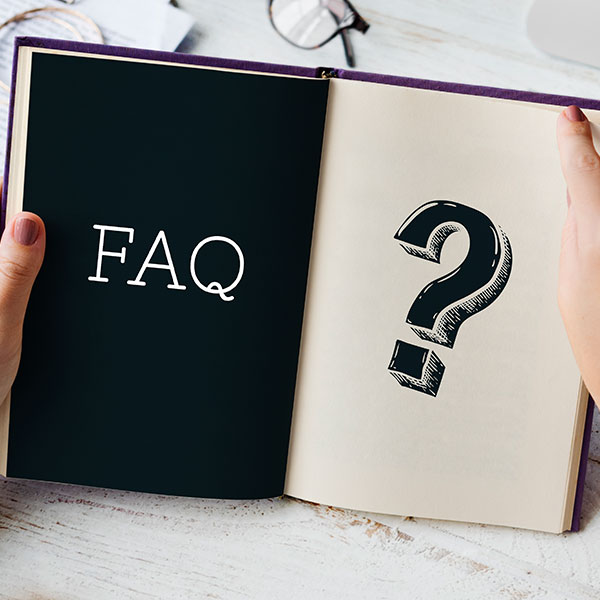Navigating Relationship Challenges: A Guide to Couples Counseling in Fort Collins
Couples’ relationships, also known as romantic or intimate relationships, hold significant importance in the lives of individuals and society as a whole. These relationships play a crucial role in personal well-being, emotional fulfillment, and the stability of families and communities.
Here are some key aspects of the importance of couples’ relationships
Emotional Support
One of the primary functions of a romantic relationship is to provide emotional support. Partners often serve as each other’s confidants, offering a safe space to share thoughts, feelings, and concerns. This emotional support helps individuals cope with life’s challenges and stressors.
Companionship
Being in a romantic relationship provides companionship and reduces feelings of loneliness. Sharing experiences, interests, and activities with a partner can enhance a person’s overall quality of life.
Intimacy and Connection
Intimate relationships offer a unique level of physical and emotional closeness. This connection fosters trust, understanding, and a sense of belonging, which can significantly improve overall happiness and well-being.
Stress Reduction
Having a supportive partner can help reduce stress and anxiety. Knowing that someone is there to share the burdens and joys of life can provide a sense of security and comfort.
Parenting and Family Stability
Many couples become parents, and strong relationships between parents are vital for the well-being of children. A stable and loving home environment contributes to a child’s emotional and psychological development.
Health Benefits
Research suggests that individuals in happy and supportive relationships tend to enjoy better physical health. Lower stress levels, improved immune function, and longer life expectancy have been associated with satisfying partnerships.
Economic Benefits
Couples often share financial responsibilities, which can lead to better financial stability. This cooperation can also provide a safety net in times of economic hardship.
Personal Growth
Healthy relationships encourage personal growth and self-improvement. Partners often inspire each other to pursue their goals, ambitions, and self-development.
Social Connections
Couples’ relationships can help individuals build a broader social network. Couples often engage in social activities with other couples, which can lead to the formation of friendships and a sense of community.
Legacy and Longevity
Many people find that their romantic relationships are a source of lasting memories and a sense of legacy. A strong partnership can create a lasting impact on both individuals and their families, leaving a positive mark on future generations.
Happiness and Life Satisfaction
Numerous studies have shown that people in satisfying romantic relationships tend to report higher levels of happiness and life satisfaction. A supportive partner can contribute significantly to an individual’s overall sense of well-being.
Relationship Skills
Learning to navigate the challenges and conflicts within a relationship can teach valuable communication and problem-solving skills that extend beyond the romantic sphere, benefiting individuals in other areas of life.
In summary, couples’ relationships are important for personal happiness, emotional well-being, and the overall fabric of society. They provide a foundation for support, companionship, and personal growth, contributing to healthier and more fulfilling lives for individuals and the communities they are a part of.

The Challenges Couples face
Couples can face a variety of challenges and problems in their relationships, and these issues can range from minor conflicts to more serious concerns. Here are some common problems couples often encounter:
Communication Issues
Effective communication is essential in any relationship. Problems can arise when couples struggle to express themselves, listen actively, or understand each other’s needs and perspectives.
Conflict and Disagreements
All couples have disagreements from time to time. The challenge lies in how they handle these conflicts. Unresolved or frequent arguments can lead to relationship stress.
Trust Issues
Trust is the foundation of a healthy relationship. Infidelity, broken promises, or past betrayals can erode trust and lead to ongoing issues.
Emotional Intimacy
Couples may struggle with emotional intimacy, leading to feelings of distance or emotional detachment. This can occur due to unresolved emotional baggage or a lack of emotional connection.
Sexual Issues
Differences in sexual desires, performance anxiety, or sexual dysfunctions can create tension in a relationship. Open and honest communication is key to addressing these issues.
Financial Conflicts
Disagreements over money, spending habits, and financial goals can strain a relationship. Financial stress can also contribute to arguments and dissatisfaction.
Parenting Disagreements
Couples who are parents may face conflicts related to parenting styles, discipline, and decisions about their children’s upbringing.
In-Law and Family Conflicts
Differences with in-laws and extended family members can cause stress within a relationship. Boundary-setting and effective communication are crucial in managing these conflicts.
Work-Life Balance
Balancing career and personal life can be challenging, and couples may struggle to find time for each other, leading to feelings of neglect or imbalance.
Jealousy and Insecurity
Feelings of jealousy or insecurity can arise due to past experiences, perceived threats, or low self-esteem, potentially causing friction in the relationship.
Lack of Quality Time
Busy schedules, technology distractions, and other commitments may lead to a lack of quality time spent together, resulting in feelings of neglect.
Different Life Goals
Couples may find themselves at odds if they have differing long-term goals, such as career ambitions, living arrangements, or plans for starting a family.
Addiction and Substance Abuse
Substance abuse or addiction issues within one or both partners can have a profound impact on a relationship, causing strain and instability.
Mental Health Concerns
Individual mental health issues, such as depression, anxiety, or unresolved trauma, can affect a relationship’s dynamics and require careful management and support.
Cultural and Religious Differences
Differences in cultural or religious backgrounds can lead to conflicts related to traditions, values, and beliefs.
Loss of Intimacy
Over time, couples may experience a decrease in physical and emotional intimacy. This can be due to various factors, including relationship complacency or personal changes.
It’s important to recognize that facing challenges in a relationship is normal, and many couples can work through these issues with open communication, empathy, and a willingness to compromise. Seeking support from a therapist or counselor can also be beneficial in resolving more complex or persistent problems. Ultimately, addressing and resolving these common problems can lead to stronger, more resilient relationships.

Couples Counseling Challenges: Emotional Intimacy
The Value Couples Counseling Fort Collins People Love
Couples counseling, also known as couples therapy or marriage counseling, can be incredibly valuable for couples facing a wide range of challenges and difficulties in their relationships. It is a therapeutic process that involves a trained therapist or counselor working with a couple to help them address and resolve their issues. Here are some of the key values and benefits of couples counseling:
Improved Communication
Effective communication is fundamental to a healthy relationship. Couples counseling provides a safe and structured environment where couples can learn and practice better communication skills. This can lead to increased understanding, empathy, and the ability to express thoughts and feelings more openly.
Conflict Resolution
Couples often have conflicts and disagreements, but it’s how they handle these conflicts that matters. A therapist can help couples identify and address the underlying issues causing conflicts and teach them strategies for resolving disputes in a constructive and healthy manner.
Enhanced Emotional Connection
Couples counseling Fort Collins can help partners reconnect emotionally. It can be particularly beneficial for couples who have drifted apart or experienced emotional detachment. Therapists can guide couples in rebuilding emotional intimacy and trust.
Increased Self-awareness
Through the therapeutic process, individuals in a relationship can gain a deeper understanding of themselves and their own contributions to relationship issues. This self-awareness can lead to personal growth and more effective relationship dynamics.
Conflict Prevention
Couples counseling isn’t just about resolving existing conflicts; it can also help prevent future conflicts by equipping couples with the tools and skills needed to navigate challenges as they arise.
Support for Major Life Transitions
Major life events such as marriage, parenthood, career changes, or relocation can put stress on a relationship. Couples counseling can provide guidance and support during these transitions, helping couples adapt and grow together.
Rebuilding Trust
For couples dealing with trust issues, infidelity, or betrayal, therapy can facilitate the process of rebuilding trust. Therapists can help establish clear boundaries and assist in the healing process.
Validation and Empathy
Couples therapy provides a neutral and nonjudgmental space where both partners can feel validated and heard. This can help reduce feelings of isolation and loneliness and foster greater empathy between partners.
Improved Intimacy
Therapists can work with couples to address issues related to physical intimacy, emotional intimacy, and sexual satisfaction. This can lead to a more fulfilling and satisfying sexual and emotional connection.
Long-Term Relationship Health
Couples counseling is not just about resolving immediate issues; it can help build a strong foundation for long-term relationship health. It equips couples with the skills and understanding needed to navigate future challenges together.
Coping with External Stressors
Couples often face external stressors such as financial difficulties, health problems, or family issues. Counseling can help couples develop coping strategies and support systems to navigate these challenges.
Decision-Making
For couples considering major decisions like separation or divorce, therapy can provide a structured process for exploring these options and making informed choices.
It’s important to note that couples counseling is not a one-size-fits-all solution, and the specific benefits can vary depending on the individuals involved and the nature of their relationship issues. However, many couples find it to be a valuable and transformative experience that can lead to greater relationship satisfaction, personal growth, and overall well-being. Choosing the right therapist or counselor who specializes in couples therapy is crucial to the success of the process.

Fort Collins Couples Counseling Challenges: Rebuilding Trust
Finding the Right Couples Counselor in Fort Collins
Finding the right couples counselor is of paramount importance in ensuring the effectiveness of the therapeutic process.
The choice of a counselor can significantly impact the outcomes of couples therapy, as it determines the quality of guidance and support received.
A skilled and compatible therapist can create a safe, nonjudgmental space for couples to explore their issues, communicate openly, and work towards resolution. They possess the expertise to identify underlying dynamics and tailor strategies that fit the unique needs and challenges of each relationship.
Furthermore, a well-matched therapist can foster trust, empathy, and rapport with both partners, which are essential elements for productive therapy sessions.
Ultimately, the right couples counselor serves as a vital facilitator in helping couples navigate their relationship difficulties, rebuild trust, and develop the skills necessary for a healthier, more fulfilling partnership.
Types of Couples Counseling Approaches
Couples counseling encompasses various therapeutic approaches and techniques, each designed to address specific issues and dynamics within relationships. The choice of the counseling approach often depends on the unique needs and goals of the couple. Here are some common types of couples counseling approaches:
Cognitive-Behavioral Therapy (CBT)
Focus:
CBT focuses on identifying and changing negative thought patterns and behaviors that contribute to relationship problems.
Application:
It helps couples recognize and modify unhealthy communication patterns and develop more effective problem-solving skills.
Emotionally Focused Therapy (EFT)
Focus:
EFT emphasizes emotional bonding and attachment within relationships.
Application:
Therapists using EFT work to help couples understand their emotional needs, improve emotional responsiveness, and strengthen their emotional connection.
Gottman Method Couples Therapy
Focus:
Developed by Drs. John and Julie Gottman, this approach focuses on the assessment of relationship factors and the identification of “Four Horsemen” (destructive behaviors) that can predict relationship failure.
Application:
The Gottman Method uses specific interventions to improve communication, conflict resolution, and overall relationship satisfaction.
Imago Relationship Therapy
Focus:
Imago therapy explores the impact of childhood experiences on adult relationships.
Application:
Couples are encouraged to understand their partner’s perspective and childhood influences, with the goal of promoting empathy and healing past wounds.
Narrative Therapy
Focus:
Narrative therapy helps couples reframe their relationship stories and narratives.
Application:
It assists couples in challenging and reconstructing negative narratives, enabling them to create more positive and empowering stories about their relationship.
Solution-Focused Brief Therapy (SFBT):
Focus:
SFBT concentrates on identifying and implementing solutions rather than dwelling on problems.
Application:
It encourages couples to set clear goals and work collaboratively to find practical solutions to their issues.
Psychodynamic Couples Therapy
Focus:
Psychodynamic therapy delves into unconscious processes and unresolved conflicts that may affect the relationship.
Application:
It helps couples explore deeper emotional and historical issues, potentially leading to greater self-awareness and healthier relationship dynamics.
Intimacy-Oriented Therapy
Focus:
This approach emphasizes emotional and physical intimacy as a way to enhance the couple’s connection.
Application:
Intimacy-oriented therapy encourages couples to explore their emotional and sexual desires, improve communication about intimacy, and reignite passion.
Behavioral Couples Therapy (BCT)
Focus:
BCT is rooted in behaviorism and focuses on changing specific behaviors within the relationship.
Application:
It often addresses issues such as communication problems, conflict resolution, and the reinforcement of positive behaviors.
Holistic or Integrative Approaches
Focus:
Holistic approaches consider various facets of a couple’s life, including physical, emotional, and spiritual aspects.
Application:
These approaches may incorporate techniques from multiple counseling models to create a tailored plan that addresses the couple’s overall well-being.
The effectiveness of each approach depends on the specific issues, goals, and preferences of the couple. Many therapists are trained in multiple approaches and can adapt their methods to best suit the needs of the individuals they are working with. Couples may need to try different approaches or therapists to find the one that works best for them.

How to Search for a Couples Counselor in Fort Collins
Searching for qualified counselors in Fort Collins, or any other location, involves a series of steps to ensure you find a therapist who meets your specific needs and preferences. Here’s a guide on how to go about it:
Identify Your Needs and Goals
Before you start searching for a counselor, take some time to clarify what you’re seeking therapy for. Consider your goals, whether it’s for couples counseling, individual therapy, specific issues (e.g., anxiety, depression), or personal growth.
Consult Your Insurance Provider
If you have health insurance, check your provider’s website or call their customer service to get a list of in-network counselors in Fort Collins. This can help you narrow down your options and potentially reduce out-of-pocket costs.
Ask for Recommendations
Seek recommendations from friends, family members, or colleagues who have had positive experiences with therapists in the Fort Collins area. Personal referrals can be valuable.
Online Directories
Utilize online directories and therapist-finding platforms. Some popular options include Psychology Today, GoodTherapy, and TherapyDen. These websites allow you to search for therapists based on location, specialties, and other criteria.
Professional Organizations
Check with professional organizations such as the American Psychological Association (APA), the American Association for Marriage and Family Therapy (AAMFT), or the National Association of Social Workers (NASW). They often have directories of licensed therapists.
Local Mental Health Clinics and Hospitals
Contact local mental health clinics, hospitals, or university counseling centers in Fort Collins. They may offer therapy services or be able to provide referrals to qualified therapists in the area.
Online Reviews and Ratings
Read online reviews and ratings of therapists to get a sense of their reputation and approach. Keep in mind that personal experiences can vary, so consider multiple reviews.
Interview Potential Therapists
Once you have a list of potential therapists, contact them to inquire about their availability, fees, and approach to therapy. It’s essential to have an initial conversation or consultation to assess whether you feel comfortable and confident with the therapist.
Ask Questions
During your initial conversation or consultation, ask questions to evaluate whether the therapist is a good fit. Inquire about their qualifications, experience, treatment approach, and what to expect from therapy sessions.
Consider Accessibility
Take into account practical considerations such as the therapist’s office location, hours of operation, and whether they offer remote or online sessions if that’s important to you.
Evaluate Compatibility
Trust your instincts when deciding on a therapist. It’s crucial to feel a sense of rapport and comfort with the counselor, as this can greatly impact the effectiveness of therapy.
Check Licensing and Credentials
Verify that the therapist is licensed and in good standing with relevant state licensing boards and professional associations.
Assess Fees and Payment Options
Understand the therapist’s fees, payment options, and whether they offer sliding scale fees or accept insurance if that’s relevant to your situation.
Take Your Time
Finding the right counselor may take some time, so don’t rush the process. It’s worth investing time and effort to ensure you find a therapist who can best support your needs and goals.
Remember that the therapeutic relationship is a significant factor in the success of counseling, so prioritize finding a therapist with whom you feel comfortable and confident in working toward your personal or relational growth and well-being.

How to search for a Fort Collins Couples Counselor: Identify Goals
What to Expect in Couples Counseling
The structure of a couples counseling session can vary depending on the therapist’s approach and the specific needs of the couple. However, there are common elements that are typically found in a couples counseling session. Here’s a general outline of the typical structure:
Greeting and Introduction
The session typically begins with a warm welcome from the therapist. If it’s the first session, there may be an introduction to the therapist’s background and the counseling process. The therapist may also explain the rules and guidelines for the session, such as maintaining respectful communication.
Setting the Agenda
The therapist may ask each partner to briefly describe their goals or concerns for the session. This helps prioritize what issues will be addressed during the session.
Open Dialogue
Much of the session is dedicated to open dialogue between the couple. The therapist facilitates this conversation, allowing each partner to express their thoughts, feelings, and concerns. This may involve discussing recent events, conflicts, or any ongoing issues in the relationship.
Active Listening and Validation
The therapist actively listens to both partners, providing a safe and neutral space for each person to express themselves. They may also validate the emotions and experiences of each partner to foster empathy and understanding.
Communication Skills Training
If communication issues are a significant concern, the therapist may teach and model effective communication skills. This can include techniques for active listening, “I” statements, and non-defensive communication.
Conflict Resolution and Problem-Solving
The therapist may guide the couple through conflict resolution exercises or problem-solving techniques. This helps the couple address specific issues and work toward solutions in a constructive manner.
Exploration of Patterns and Dynamics
The therapist helps the couple explore recurring patterns of behavior and dynamics in their relationship. This can involve identifying triggers for conflict and understanding how past experiences may influence current interactions.
Homework Assignments
At the end of the session, the therapist may assign homework or tasks for the couple to work on between sessions. These assignments are designed to reinforce the skills and strategies discussed in therapy and to promote ongoing progress.
Feedback and Reflection
The therapist may offer feedback on the session and encourage the couple to reflect on what they’ve discussed. This can help consolidate insights and promote self-awareness.
Goal Setting
Towards the end of the session or in subsequent sessions, the therapist and the couple collaboratively set goals for the counseling process. These goals can be both short-term and long-term, focusing on the changes and improvements the couple wants to achieve.
Closure and Scheduling Next Session
The session concludes with a summary of what was discussed and any important takeaways. The therapist schedules the next session, if applicable, and addresses any administrative matters.
Confidentiality Reminder
Throughout the session, the therapist reminds the couple of the importance of confidentiality and the limits to confidentiality as required by ethical guidelines.
Each couples counseling session typically lasts around 50 minutes to an hour, but the exact duration can vary. The number of sessions needed depends on the couple’s goals and the complexity of their issues. Couples counseling is often an ongoing process, with regular sessions scheduled over a period of time to address and work through relationship challenges effectively.

Common Misconceptions and Fears about Couples Counseling
Couples counseling can be highly beneficial, but there are common misconceptions and fears that may prevent some individuals or couples from seeking help. Understanding these misconceptions and addressing fears can help dispel concerns and encourage those in need to pursue counseling. Here are some common misconceptions and fears about couples counseling:
1. Misconception: “Couples counseling is only for serious problems.”
Fear: Some couples believe that counseling is only necessary for relationships on the brink of divorce or experiencing severe dysfunction. As a result, they may hesitate to seek help until issues have escalated.
Reality: Couples counseling is not just for crises; it can benefit relationships at any stage. Whether couples want to strengthen their communication, address minor conflicts, or enhance their connection, counseling can be a valuable tool for personal growth and relationship improvement.
2. Misconception: “Counselors will take sides or blame one partner.”
Fear: Couples may worry that the therapist will be biased or take sides, leading to a sense of unfairness or judgment.
Reality: Qualified couples therapists are trained to be impartial and unbiased. Their role is to facilitate productive conversations, promote understanding, and guide both partners toward healthier communication and problem-solving. They do not take sides or assign blame.
3. Misconception: “Couples counseling is only about talking; it won’t lead to real change.”
Fear: Some individuals may doubt that talking with a therapist will lead to tangible changes in their relationship.
Reality: Effective couples counseling goes beyond talking; it equips couples with practical tools, strategies, and insights to improve their relationship. Therapists work collaboratively with couples to help them implement positive changes in their daily interactions.
4. Misconception: “Counseling won’t work for us; our problems are too deep-seated.”
Fear: Couples facing longstanding or deeply rooted issues may fear that counseling won’t be able to resolve their problems.
Reality: While therapy may not provide a quick fix, it can be highly effective in addressing complex issues. Therapists are trained to help couples delve into the underlying causes of problems and develop strategies for long-term improvement.
5. Misconception: “Couples counseling is embarrassing or invasive.”
Fear: Couples may feel uncomfortable discussing private or sensitive matters with a therapist.
Reality: Couples therapists create a safe, nonjudgmental, and confidential environment. They are trained to handle sensitive topics with sensitivity and discretion, ensuring that both partners feel respected and supported.
6. Misconception: “Couples counseling is a last resort.”
Fear: Some couples may view counseling as a sign of failure or as a last-ditch effort to save a failing relationship.
Reality: Couples counseling can be a proactive step for personal growth and relationship enhancement. It doesn’t signify failure but rather a commitment to improving the relationship and learning valuable skills.
7. Misconception: “We can solve our problems on our own.”
Fear: Couples may believe they should be able to handle their issues independently, without outside help.
Reality: While many couples can navigate their challenges successfully, counseling can provide an objective and expert perspective, offering new insights and tools that may not be apparent to the couple on their own.
Addressing these misconceptions and fears can help individuals and couples make informed decisions about seeking couples counseling. It’s essential to approach counseling with an open mind and willingness to work collaboratively with a qualified therapist to improve and strengthen the relationship.

The Process of Couples Counseling
The initial assessment and goal-setting phase in couples counseling is a critical stage that sets the tone for the entire therapeutic process. During this phase, the therapist gathers essential information about the couple’s relationship, identifies areas of concern, and collaboratively establishes therapeutic goals. Here’s an overview of what typically happens during this phase:
1. Introduction and Relationship History
The therapist begins by introducing themselves and creating a welcoming and nonjudgmental atmosphere. They may ask each partner to share some background information about themselves and their relationship, including how they met, their history together, and any significant life events that have impacted their relationship.
2. Identifying Concerns and Goals
The therapist invites both partners to express their concerns, issues, and reasons for seeking counseling. Each partner has an opportunity to share their perspective on what they hope to achieve through counseling.
3. Assessing Relationship Dynamics
The therapist conducts an assessment of the couple’s relationship dynamics. This may involve asking questions about communication patterns, conflict resolution strategies, and how they handle stressors and challenges as a couple.
4. Individual Assessments
In some cases, the therapist may conduct individual assessments or interviews with each partner separately to gain a deeper understanding of their unique perspectives, needs, and concerns. These individual assessments can provide valuable insights into the relationship.
5. Exploration of Strengths and Resilience
The therapist may also inquire about the couple’s strengths, positive experiences, and past successes in their relationship. Identifying these areas of resilience can be helpful for building upon existing strengths during the therapeutic process.
6. Goal Setting
Based on the information gathered, the therapist collaborates with the couple to establish clear and specific therapeutic goals. These goals should be focused on addressing the concerns identified and achieving positive changes in the relationship.
7. Prioritizing Goals
It’s common for couples to have multiple concerns and goals. The therapist helps the couple prioritize these goals, identifying which ones are most pressing and which may need to be addressed over time.
8. Discussing Expectations and Therapeutic Process
The therapist explains the counseling process, including the frequency of sessions, the length of the treatment, and the roles and responsibilities of all parties involved. They also discuss confidentiality, fees, and any other administrative matters.
9. Building Rapport and Trust
Throughout this phase, the therapist focuses on building rapport and trust with both partners. This is crucial for creating a safe and nonjudgmental space in which the couple can openly discuss their concerns.
10. Treatment Plan Development
Based on the established goals, the therapist begins to develop a treatment plan that outlines the strategies and interventions they will use to address the couple’s concerns. The treatment plan serves as a roadmap for the counseling process.
The initial assessment and goal-setting phase is a collaborative effort that lays the foundation for the subsequent sessions. It helps the therapist and the couple gain clarity on the issues at hand, establish a sense of purpose, and work together to create a roadmap for achieving their desired outcomes in couples counseling. This phase also helps ensure that the therapeutic process is tailored to the unique needs and goals of the couple.

Introduction & Relationship History
Insights into the Duration and Frequency of Couples Counseling
The frequency and duration of couples counseling sessions can vary depending on several factors, including the nature and severity of the issues being addressed, the goals of therapy, the therapist’s approach, and the couple’s preferences and availability. Here are some insights into the frequency and duration of couples counseling sessions:
Frequency of Sessions
Weekly or Biweekly Sessions:
Weekly or biweekly sessions (every two weeks) are common in couples counseling. This regularity allows for continuity and momentum in the therapeutic process, helping couples stay engaged and make consistent progress.
Intensive Sessions:
In some cases, couples may opt for intensive counseling formats, such as full-day sessions or multiple sessions in a single week. This can be beneficial when couples are dealing with acute crises or desire a more concentrated approach.
Less Frequent Sessions:
In less urgent situations or when logistical constraints exist, couples may schedule sessions less frequently, such as once a month. However, less frequent sessions can sometimes prolong the overall duration of therapy.
Duration of Sessions
Typical Session Length:
A standard couples counseling session typically lasts 50 minutes to an hour. This duration allows sufficient time for both partners to express themselves, engage in constructive dialogue, and work on therapeutic goals.
Extended Sessions:
Some therapists offer extended sessions lasting 75 to 90 minutes. These longer sessions can be especially helpful for in-depth exploration of complex issues or for couples who prefer less frequent sessions.
Total Duration of Therapy
Short-Term Counseling:
Some couples may achieve their therapy goals in a relatively short period, such as six to eight sessions. Short-term counseling is often focused on addressing specific issues or improving communication and problem-solving skills.
Longer-Term Counseling:
Couples with more complex or deeply rooted issues may engage in longer-term therapy, which can extend for several months or even a year or more. Long-term therapy allows for a deeper exploration of underlying dynamics and sustainable change.
Open-Ended or Maintenance Therapy:
In some cases, couples may choose to continue therapy on an open-ended basis as a form of maintenance or check-ins to ensure ongoing relationship health and address any emerging concerns.
Factors Influencing Frequency and Duration
Severity of Issues:
The severity of the relationship issues often plays a role in determining the recommended frequency and duration of counseling. More severe or chronic problems may require longer-term therapy.
Goals of Therapy:
The specific goals couples have for therapy can also impact the duration. Short-term, goal-focused therapy may have a defined endpoint, while ongoing maintenance therapy may be open-ended.
Therapist’s Approach:
Different therapists have varying approaches and treatment plans. Some may advocate for a specific number of sessions, while others prefer a more flexible approach based on the couple’s progress.
Progress and Readiness:
Couples’ progress and readiness to implement changes can influence the duration. Some couples may need more time to work through issues, while others may make rapid progress.
Financial and Logistical Considerations:
The cost of therapy and logistical constraints, such as scheduling conflicts, may also affect the frequency and duration of sessions.
Ultimately, the frequency and duration of couples counseling should be discussed and determined collaboratively between the couple and the therapist. Regular check-ins with the therapist can help reassess goals and determine whether adjustments in frequency or duration are needed to achieve the desired outcomes. It’s important for couples to have realistic expectations about the time and effort required for meaningful change in their relationship through counseling.

Counseling Frequency Calendar
Couples Counseling Frequently Asked Questions (FAQ)
What is couples counseling, and how does it work?
Couples counseling is a therapeutic process that helps couples address and resolve relationship issues. It typically involves sessions with a trained therapist who guides the couple in improving communication, problem-solving, and overall relationship satisfaction.
When should a couple consider seeking counseling?
Couples may consider counseling when they are experiencing communication problems, conflicts, a lack of intimacy, trust issues, or when they want to enhance their relationship, even if there are no major issues.
What can we expect in our first couples counseling session?
The first session often involves an introduction to the therapist, a discussion of the counseling process, an exploration of the couple’s concerns, and the establishment of therapeutic goals.
How long does couples counseling typically last?
The duration of counseling varies depending on the couple’s goals and the complexity of their issues. Some couples find resolution in a few months, while others may engage in longer-term therapy.
Is couples counseling only for married couples?
No, couples counseling is for any romantic partnership, including married couples, unmarried couples, engaged couples, and LGBTQ+ couples.
Will the therapist take sides or tell us who’s right or wrong?
No, a skilled couples therapist remains neutral and does not take sides. Their role is to facilitate communication, promote understanding, and help the couple work together to find solutions.
How much does couples counseling cost, and does insurance cover it?
The cost of counseling varies by location and therapist. Some insurance plans may cover a portion of the cost. Check with your insurance provider for details on coverage.
Is everything we discuss in counseling confidential?
Conversations in counseling are typically confidential. However, therapists are mandated reporters, and there are exceptions to confidentiality, such as if there is a risk of harm to oneself or others.
What if my partner refuses to attend counseling? Can I still go alone?
Yes, you can attend individual counseling to work on personal issues and relationship challenges, even if your partner is not willing to participate. Individual therapy can provide you with valuable insights and coping strategies.
Can couples counseling save a relationship on the brink of divorce?
Couples counseling can be beneficial in many cases, even when a relationship is facing significant challenges. However, success often depends on both partners’ willingness to actively engage in the process.
What if we have already separated or divorced? Can we still benefit from counseling?
Yes, separated or divorced couples can benefit from counseling, especially if they share ongoing responsibilities like co-parenting. Counseling can help improve communication and collaboration in these situations.
What if we don’t feel comfortable with our therapist?
It’s essential to feel comfortable and confident in your therapist. If you don’t feel a good fit, consider discussing your concerns with the therapist or seeking another therapist who better suits your needs.
Can we attend couples counseling via telehealth or online platforms?
Yes, many therapists offer couples counseling via telehealth platforms, allowing couples to access therapy from the comfort of their own homes.

Couples Counseling FAQ

